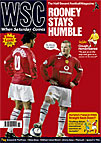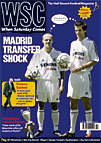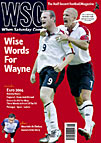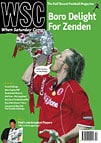 Ian Plenderleith trawls the web for minnows and finds that the smallest European football associations and their clubs are, like their teams out on the pitch, willing but not always particularly able
Ian Plenderleith trawls the web for minnows and finds that the smallest European football associations and their clubs are, like their teams out on the pitch, willing but not always particularly able
Like it or not, small and mostly useless European footballing nations are now an integral part of the game’s landscape. This month’s column tackles the highly charged question that many have asked but few have been able to answer – can countries such as Luxembourg and Liechtenstein compete on the web any better than they do on the field?


